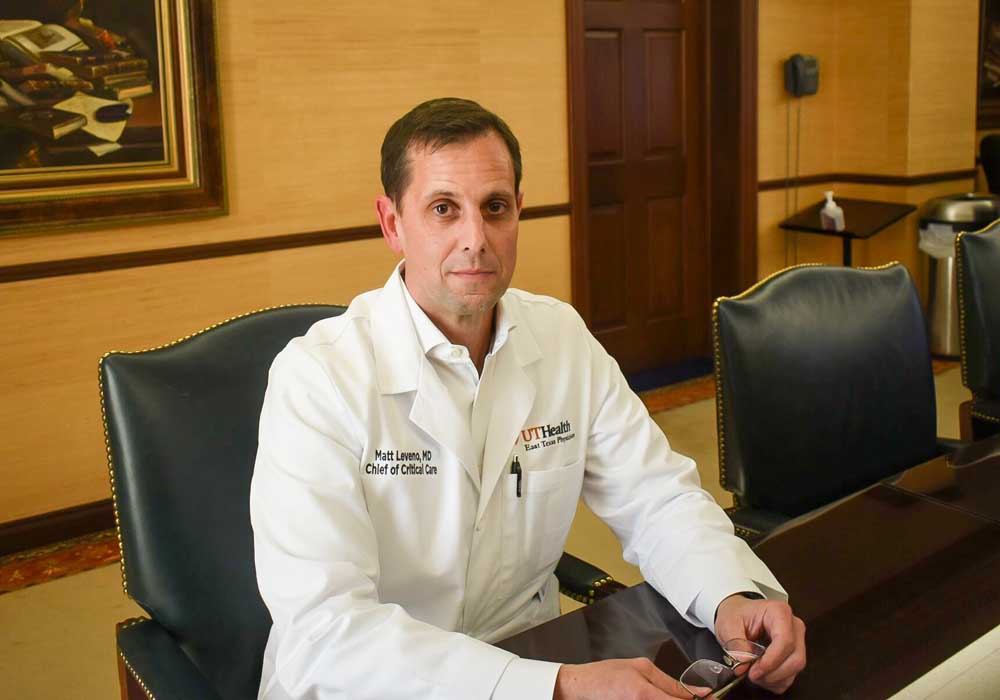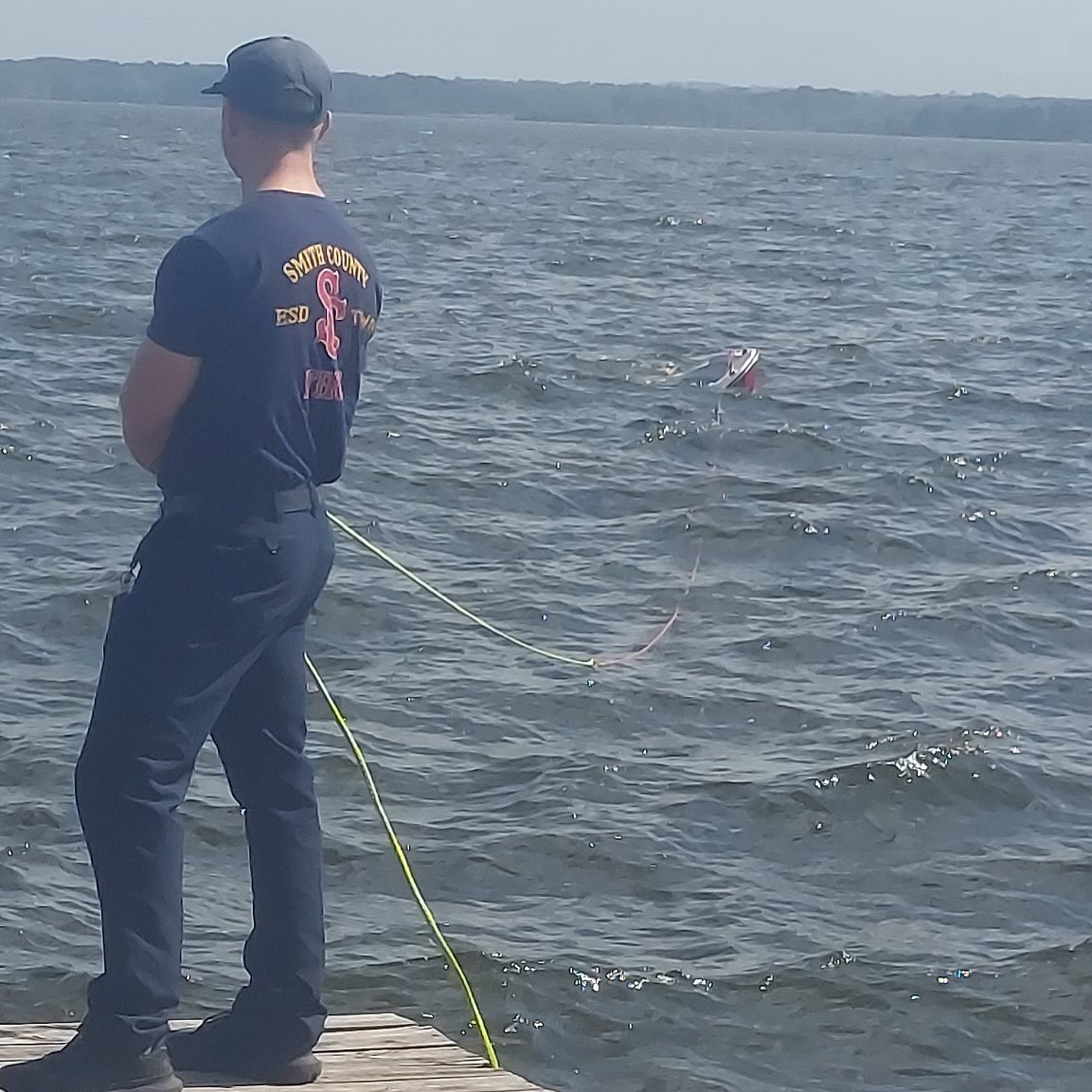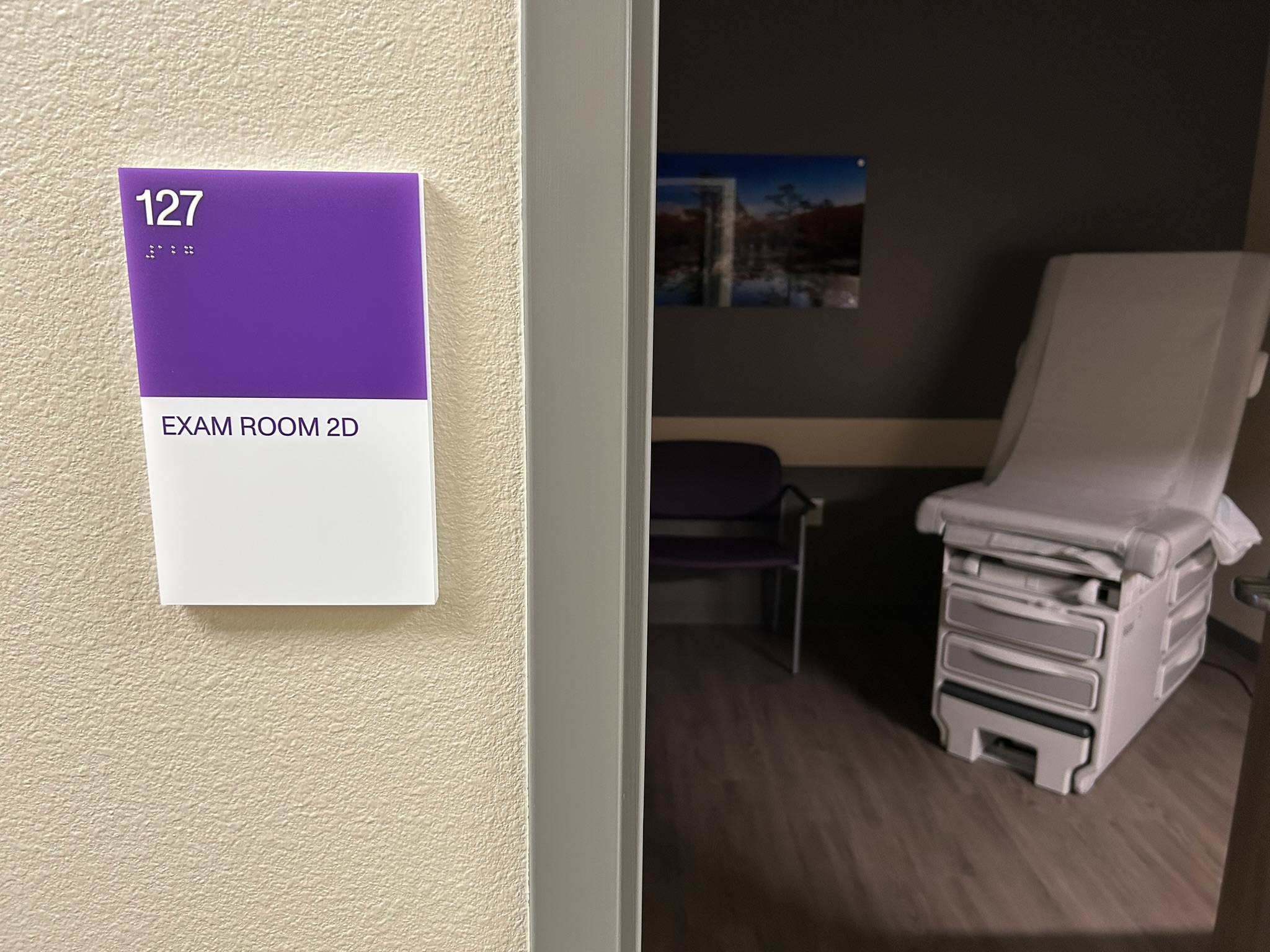New program at UT Health East Texas helps people with severe lung or heart failure
Published 3:55 pm Wednesday, February 7, 2024

- Dr. Matt Leveno, Director of Critical Care at UT Health East Texas, sits at a table at UT Health East Texas Tyler.
UT Health East Texas is starting a new program, extracorporeal membrane oxygenation (ECMO), to help those with severe lung or heart failures.
As an advanced pulmonary and cardiac treatment, ECMO is used for critically ill patients to alleviate the stress on these vital organs, allowing restorative time for recovery to a state of normal function.
The pump takes over for the heart or lung and allows the blood to take over for the system. It does not treat the lung or heart failure but allows the body to recuperate.
Doctors say the program will help with elevating the level of care at UT Health East Texas and help patients get this type of care in Tyler.
“What gets me excited about ECMO and this program is not just the ECMO but everything that we have to do to make that possible here; it’s gonna raise the level of care that we’re able to provide to all of our other patients, particularly in the critical care space,” said Dr. Matt Leveno, Director of Critical Care at UT Health East Texas Tyler. “But a lot of the things that you have to be able to do for ECMO really spill over into all these other areas.”
Dr. Michael Lamanteer, UT Health East Texas Chief Medical Officer, added, “This treatment will allow patients to receive the highest level of cardiac and pulmonary supportive care locally, rather than being transferred to a facility far from home to receive this cutting-edge therapy.”
An ECMO program needs a team-based approach, Leveno said. As UT Health East Texas builds the program, they will have a multidisciplinary team which will include: physicians, nursing staff, ECMO specialist, perfusion team and ancillary services, pharmacy. In addition, the team will have pulmonary critical care doctors, cardiologists, vascular surgeons, cardiovascular ICU nursing staff, respiratory therapists and EMS services. EMS will be transporting patients once they reach a point of being able to transport, according to Lamanteer.
As they build the team, UT Health is beginning to identify patients who would benefit from this treatment. In January, they identified three patients. They anticipate seeing 25 to 30 patients a year. The team hopes to increase numbers as they gain experience, Lamanteer said.
“What’s different here right now is that we’re getting better at just identifying the patients that would benefit from it,” Leveno said. “So it’s one of those things where, that knowledge, you start seeing opportunities to take care of patients that you didn’t see before because we didn’t have the experience. We didn’t have the knowledge.”
ECMO is more often used for shorter periods of time which can be days or hours. Patients with severe lung injuries, from things such as trauma or car accidents, and patients with mechanical heart issues from heart attacks, heart failure and respiratory lung failure could benefit from ECMO.
In a previous job, Leveno worked with COVID-19 patients, who had lung issues using ECMO. Due to the effects COVID-19 caused on patients, the staff used ECMO for longer periods of time.
Leveno said at his previous facility, the staff saw many cases of advanced, severe lung disease, and many patients unfortunately die as a consequence. However with ECMO, stress on these vital organs can be alleviated, allowing restorative time for recovery to a state of normal function.
Leveno explained at his previous facility, they introduced ECMO after many months of the pandemic.
“… it was very pointed for me to be able to see … what these patients look like without ECMO, and then suddenly to be able to introduce it and see what it can do for patients who are in fact good candidate for it, it was was pretty miraculous,” he said.
The program will also work with University of Tyler students from the School of Nursing, School of Medicine and residency programs. One program they plan to work with is the critical care nursing program. In addition, UT Tyler has a program dedicated to training flight nurses.
“It allows our patients to receive this type of life-saving care close to home,” Lamanteer said. “That translates into more lives being saved. Because anytime we have to transfer folks out, and we have to delay their care when it’s this type of criticality, the chance of those patients having a successful outcome is diminished a bit. So the timeliness of that care is critical. And doing this with this type of mindset around building this program. I have no doubt [it] will [have] an end result of saving lives here in East Texas.”






